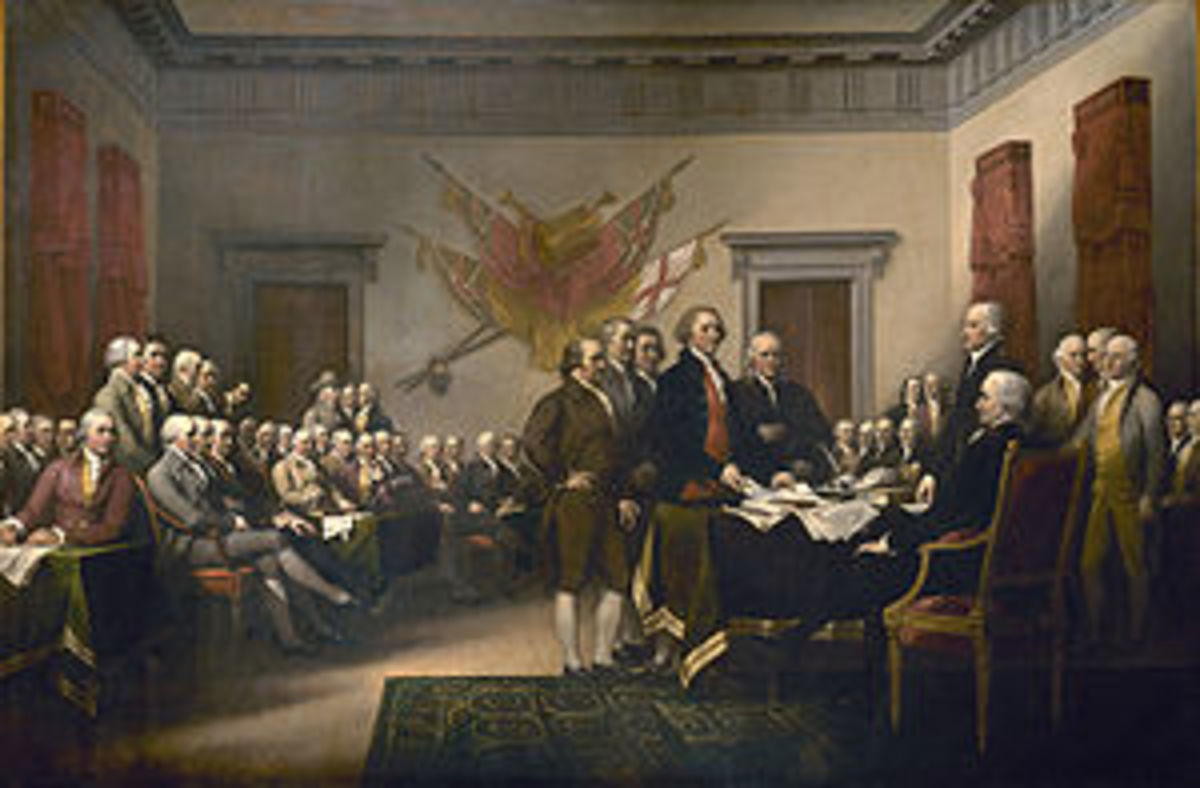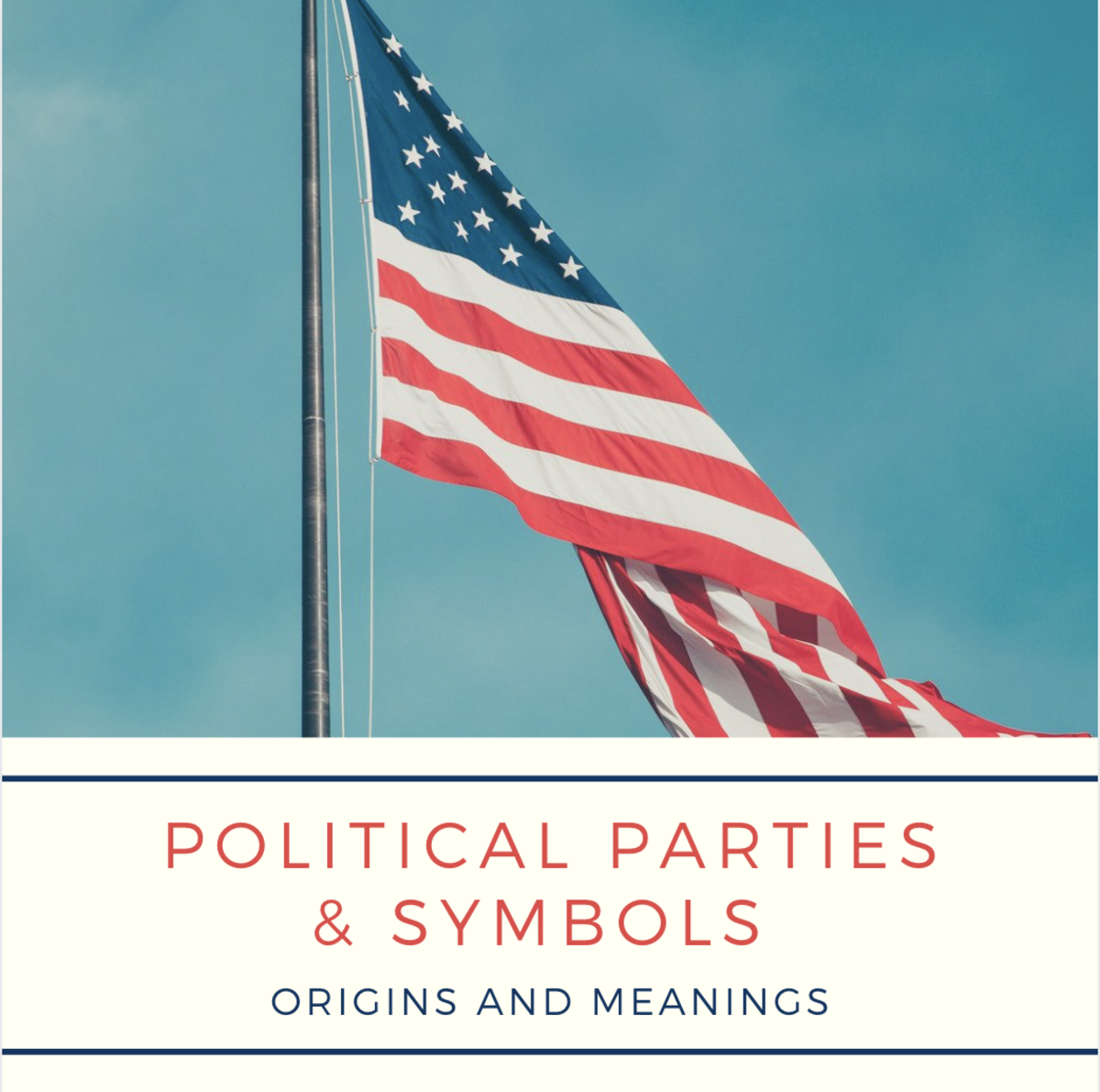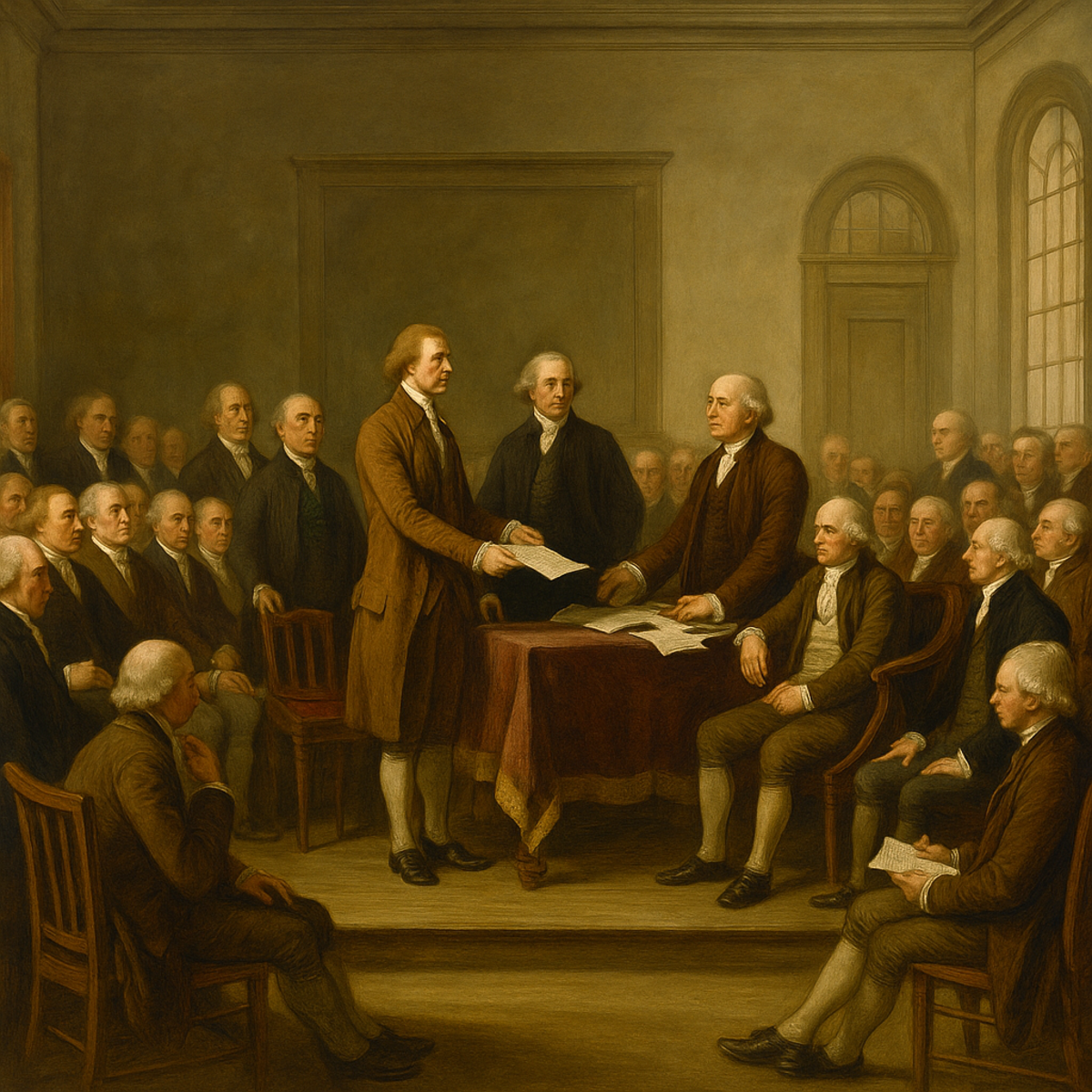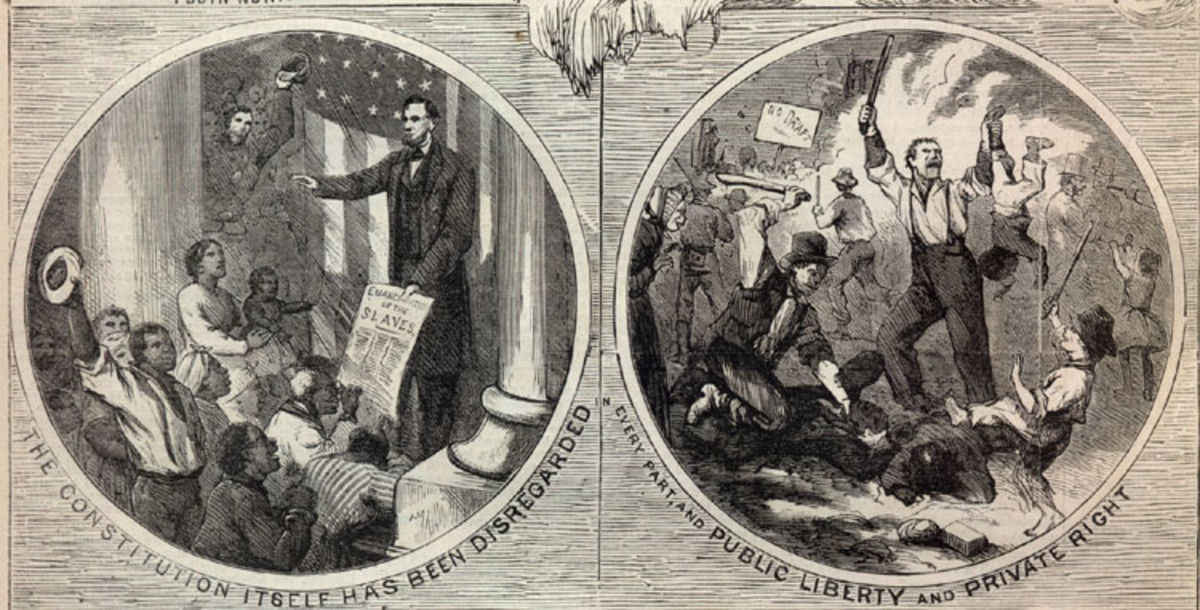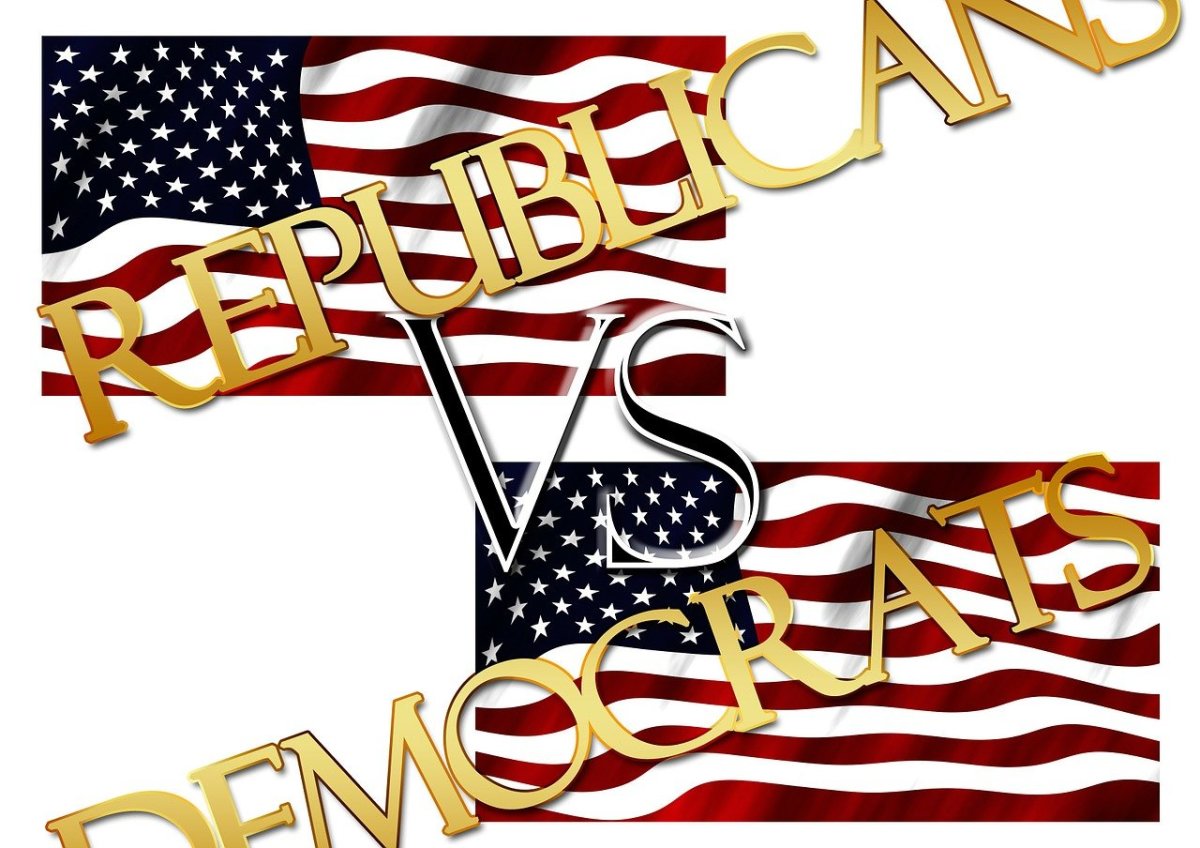American Politics: The "Federalist Papers" - Back in Perspective - FP# 1; Alexander Hamilton
Preamble
THE ORIGINAL PURPOSE OF THE FEDERALIST PAPERS WAS to convince the delegates to the New York State Constitutional Convention to ratify the new, proposed Constitution of the United States. In it, John Jay, Alexander Hamilton, and James Madison laid out their reasoning why New Yorkers ought to accept a document that would institute a strong, centralized, federal government. And just that quickly, a multitude of readers will probably object to my characterization of the proposed federal government as "strong" and "centralized". Nevertheless, I will show in this series on the Federalist Papers that this was exactly what the writers, at that time, intended.
I had to use the qualifier "at that time" because James Madison, after suggesting that the federal government have veto power over the State Legislatures during the Constitutional Convention in Philadelphia, flipped positions after he was barely elected as a representative of Virginia to the House. Once installed (surprisingly this was not a slam-dunk; Patrick Henry almost killed Madison's political career), he became what is now termed a "states-rightist"; that is until he became President where he backed down from that belief a bit. John Jay and Alexander Hamilton went on to become staunch Federalists while James Madison formed and jointed the Republican Party (ironically, what the ant-federalists became) aka the Jeffersonian-Republican Party aka the Democratic-Republican Party and finally aka the Democratic Party (with Andrew Jackson). *
It may surprise you that getting the Constitution ratified was very much an uphill battle. One principal roadblock was the lack of a specific bill of rights; and in fact, it was only on the promise that one would be added did the the Constitution become ratified in some states. James Madison argued, wrongly as it turns out, that the wording of the final document was sufficiently narrow that the ideas contained in the Bill of Rights were implied in the main document. While in writing the Federalist Papers, Madison did not appear to be a strict constructionist, for the time he served in the House there is no question he turned into one.
Ultimately, the Federalist Papers helped swing the tide in New York for the Constitution and later helped change minds when it was published in other states, especially Virginia. Since then, they have taken on the status as one of America's founding documents and sources for Supreme Court decisions. It has also been hijacked by the far-Right in contemporary American politics and help up as a statement of their core values; which, from my point of view, is the highest for of irony and chutzpah. The reason should be obvious; the far-Right is for States Rights to the max while the Federalist Papers argue for just the opposite point of view.
* Just to carry this forward and show you how confusing it gets; the Federalists withered and died to be replaced by the Whigs some time later. The Whigs joined with breakaway liberal Democrats to become the Republican Party while the mainly conservative Democratic Party became even more conservative ... for awhile. Since then, the Republican Party has metamorphosed (yes, "... phosed" is correct) into the Democratic Party of President Obama while the Democratic Party of old is now the GOP-Tea Party of today; go figure.
Historical Setting
BEFORE MOVING ON TO FEDERALIST PAPER #1, I WANT to put its writing in a historical setting. As one would guess, the world of Jay, Alexander, and Madison was immeasurably different from today in most respects; although in a few critical areas, nothing much has changed.
- What has stayed the same is the division of the country into 3 regionally based political philosophies and values. One for the Northeast, ending at about the line between Pennsylvania and New York; another is the South, with Virginia being its Northern-most state; and finally, everything in between. (Oh yes, I shouldn't forget Rhode Island, a nation onto itself then) Because these world views are so different, and often at odds with each other, many proposed there be three confederacies, one representing each block.
- The common thread holding all parts together is a common enemy in the form of first the English Parliament and then their King. If too much distance in time had occurred between the end of the Revolutionary War and the formation of the United States, I would argue no such union would have ever come into being.
- "Democracy" was a dirty word to all but the most enlightened. It was something to be feared as it leads to mob rule and a disorderly society. America, at this time, was an elitist society in the original meaning of the word, not the one used in today's political discourse. In this respect, virtually every mover and shaker of the era were conservative, regardless of how liberal they were (and most were liberal). They were conservative in this respect ... all but a very few sincerely believed that the masses could not rule themselves, that it took educated, propertied white men to do that for them. Even though the noble thoughts contained in the Declaration of Independence argued differently, this was the paradigm of the day. It would take about another 195 years before those sentiments came to fruition with the Civil and Voting Rights Acts of 1964 and 1965, respectively. (Rights, in my opinion, which are currently under assault.)
My Esoteric's Political Bias
SINCE THIS IS A CRITIQUE AND ANALYSIS OF A POLITICAL DOCUMENT, it is best the reader understand what my perspective is in order to better interpret why I said what I did. For those of you who do read my thoughts and comments, many say I am a flaming liberal while others say I am just this side of being a fascist. That view, of course, depends on the specific issue under discussion.
The truth is I am a somewhat socially liberal and somewhat fiscally conservative, but not that far off the middle for either dimension. I consider myself a pragmatic progressive meaning my motivation is to 1) move from a less free society to a more free society (progressivism) and 2) I won't let blind adherence to principles get in the way of achieving the first goal (pragmatism). It is that paradigm that colors all that I write and how I interpret the world. So where does that leave me on specific large issues.
CONSTITUTION: It is clear in the whole of the Federalist Papers, Madison's Notes to the Constitutional Convention, and from reading the biographies of several of the founders that this document was intended to "live", to change with the times. Madison was very clear, when advocating for Article V, the article devoted to amending the Constitution. Many on the Right do not hold that view which leads the to justify their so-called "strict constructionist" view. It is my thought that "strict constructionism" is the antithesis to the Constitution; in other words, the signers of the Constitution meant for its interpretation to change as time marches on, or to physically be changed via Article V.
LIBERALISM: I am a liberal whether you use the original definition or even the one associated with liberalism today. There are, obviously, many flavors of liberals; in fact, many who call themselves "conservatives" today really aren't. Why do I say this? Because when you read their Hubs or comments, it is the focus on individual liberty which comes shining through and not the belief that a hierarchical construct is the "natural" way of the world. Liberals by definition oppose limits on individual liberty. What separates the various forms of liberalism are 1) to what degree they are willing to give up their liberty as a trade-off to establishing a government to protect them, 2) to what degree they believe government, especially central government must be involved to protect an individual's liberty when it is threatened from foreign or domestic sources, and 3) how they propose to resolve the issue of when one persons rights conflicts with another's.
My answer to those three questions are 1) as little as possible while maintaining a civil society and reasonable protection from those who wish to do me harm, 2) government, including central government, has the active responsibility to intercede when there is a threat the Peoples right to do as they like so long as it does no harm, and 3) the resolution should favor the side with the least control over their own fate or where it requires one party figure out a way to exercise their liberty; religeous liberty does not trump individual liberty.
CORPORATIONS: Corporations have human rights only so far as it pertains to criminal and tort law. In all other matters, corporations are no different than a rock. There must be a Constitutional Amendment clarifying this.
CRIMINAL JUSTICE: It must be realized that the criminal justice system is simply people doing a job which have certain rules which must be followed. As people, they are subject to the same failures of character as any other person. But, what sets these people apart from all others is that what they do directly effects the liberty of other individuals, the bedrock of a liberalism. It was the abuse by the British that led to current set of protections, but history shows us they are not enough.
I come down on the side that it is better to let 10 guilty men go than convict 1 innocent one. Consequently, checks and balances, which currently aren't strong enough, must be put in place to minimize the possibility of convicting the innocent, something that happens with much to much regularity in America
PUBLIC ASSISTANCE: Human beings can be broken down into three mutually exclusive groups; 1) those who are willing to work (at legitimate jobs) for a living, 2) those who aren't willing to work (this includes criminals), and 3) those where support oneself is not an option and are dependent on others to survive, e.g., children and the disabled. It is also a fact of life that not everyone can work when they want to or, if they can find work, are stuck in a job that does not pay a living wage. Finally, another truism is that there are not enough private individuals and institutions in America to take care of those in need.
ALEXANDER HAMILTON
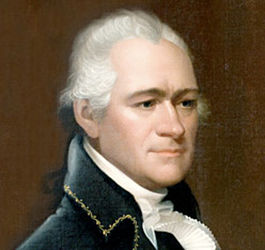
# 1 - General Introduction (Alexander Hamilton)
FEDERALIST PAPERS #1 WAS SHORT AND SWEET, AS IT SHOULD BE. Hamilton opened things up trying to explain why it was important to write this series of essays; why the audience should care. At hand was the NY Constitutional Convention being held to determine whether the proposed Constitution forwarded by the Continental Congress for their consideration.
Hamilton wanted to make clear to all conserved that this document was like no other the world, let alone the American people. At stake, he claimed, whether a People will be able to voluntarily govern themselves. More elegantly, Hamilton said:
"It has been frequently remarked that it seems to have been reserved to the people of the county, by their conduct and example, to decide the important question, whether societies of men are really capable or not of establishing good government from reflection and choice, or whether they are forever destined to depend of the their political constitutions on accident and force."
One caution that is offered to the public is that one major obstruction they will face in coming to a learned decision is the existence of
"... a certain class of men ... to resist all changes which may hazard a diminution of the power ... of the offices they hold under the State establishments; and the perverted ambition of another class of men, who either hope to aggrandize themselves by the confusion of their country, or will flatter themselves with fairer prospects of elevation from the subdivision of the empire into sever partial confederacies then from under one government."
In other words, watch out for the Anti-Federalists; the name for those who opposed the ratification of the Constitution. He cautions, however, that even though "a torrent of angry and malignant passions will be let loose" over the ratification process, debating this is not a path that is needed to go down to establish a compelling case for approving the Constitution. other than to admonish the reader to "think for themselves".
Hamilton finishes up the Introduction by proposing to discuss the following:
"The utility of the union to your political prosperity the insufficiency of the present confederation to preserve that union the necessity of a government at least equally energetic with the one proposed, to the attainment of this object the conformity of the proposed constitution to the true principles of republican government its analogy to your own state constitution and lastly, the additional security which its adoption will afford to the preservation of that species of government to liberty, and to property."
It seems to me a few commas are missing. I think the above will make more sense by inserting a few, to wit:
"The utility of the union to your political prosperity, the insufficiency of the present confederation to preserve that union, the necessity of a government at least equally energetic with the one proposed, to the attainment of this object the conformity of the proposed constitution to the true principles of republican government, its analogy to your own state constitution, and lastly, the additional security which its adoption will afford to the preservation of that species of government to liberty, and to property."
And so we begin.
INTERESTING LINKS
- American History IV: Founded in Liberalism, Conserva...
Liberals come in two flavors, those who believe gov't has a role to play in helping citizens achieve success and those who believe individuals are totally responsible for their own fate, come what may - American History II - Thomas Jefferson, an Amazingly...
American history is amazing; it has so much to teach us about today. This Hub is a progression of stories about Thomas Jefferson, one of the most enigmatic politicians of our history. - On Principle and Pragmatism II - Ratification of the...
Most Americans, including most Conservatives and Tea Party types, as well as Democrats, are not aware how close we came to not having an America at all. Roughly 50% of colonialists wanted something more like the what the European Union is today, exce - American History IV: Do You Know Who You Really Are?...
© 2016 Scott Belford

